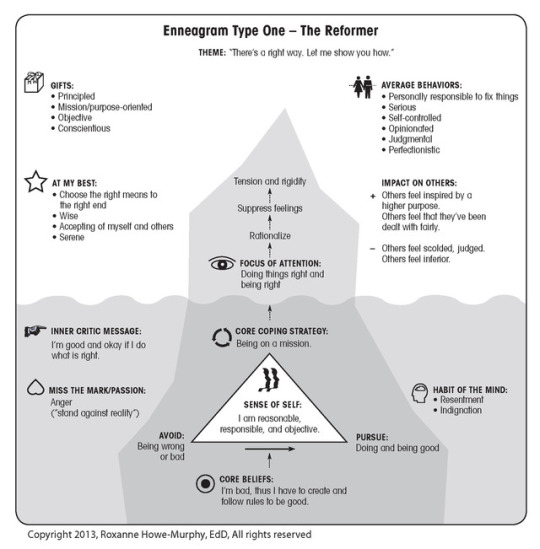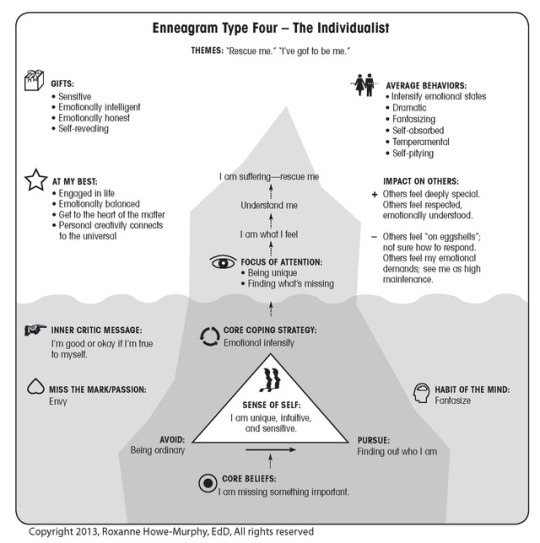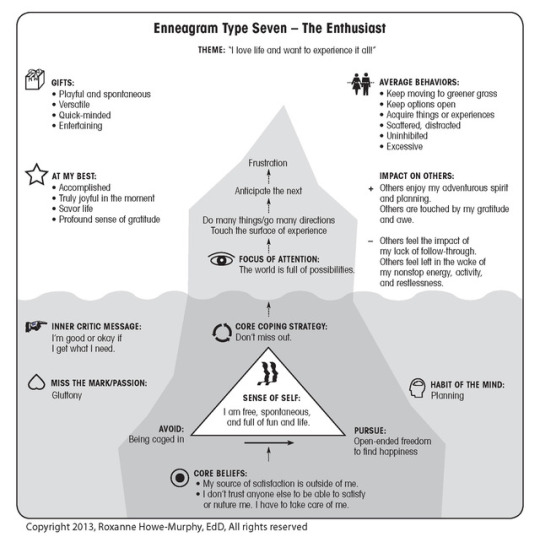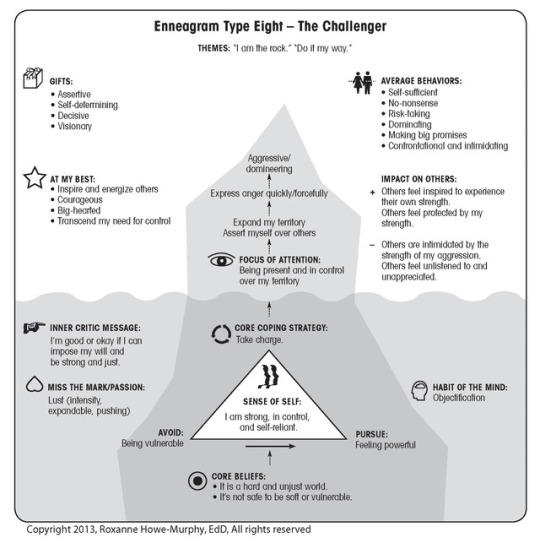A psychology major who writes original posts on clinical psychology and relating researches. An avid fan of the ace attorney series.
Don't wanna be here? Send us removal request.
Photo
lol it works

I hope he knows I’d die for him
87 notes
·
View notes
Photo
OMG 3ds kris


i’d like to think he’s encouraging me to review my notes for my exams,
34 notes
·
View notes
Text
Great advice for high schoolers
Six Techniques for Writing Your 150-Word Extracurricular Essay

If you’re applying early action, you’re probably working on one (or several) short extracurricular statements. First, a quick FAQ:
Q: Why do so many schools ask for these? A: The Common App used to require students that students write a 1,000 character (approx. 150-word) extracurricular statement. When in 2013 the Common App dropped the requirement, many colleges kept it as a supplement.
Q: Do I really have to write it? A: When students ask me this my usual response is: “Really? You’d rather not talk about that thing you’ve devoted hundreds of hours of your life to? Okay, good idea.” (I’m not actually that sarcastic, but that’s what I’m thinking.)
Q: Which extracurricular activity should I write about? A: I write about that here.
Q: What should I say? How should I structure it? A: Keep it simple.
a. What did you literally do? What were your actual tasks? b. What did you learn?
With 150 words, there’s not a lot of room for much more. And while your main statement is more “show” than “tell,” this one will probably be more “tell.” Value content and information over style.

Here’s a great example:
Example 1: Journalism
VIOLENCE IN EGYPT ESCALATES. FINANCIAL CRISIS LEAVES EUROPE IN TURMOIL. My quest to become a journalist began by writing for the international column of my school newspaper, The Log. My specialty is international affairs; I’m the messenger who delivers news from different continents to the doorsteps of my community. Late-night editing, researching and re-writing is customary, but seeing my articles in print makes it all worthwhile. I’m the editor for this section, responsible for brainstorming ideas and catching mistakes. Each spell-check I make, each sentence I type out, and each article I polish will remain within the pages of The Log. Leading a heated after-school brainstorming session, watching my abstract thoughts materialize onscreen, holding the freshly printed articles in my hand—I write for this joyous process of creation. One day I’ll look back, knowing this is where I began developing the scrutiny, precision and rigor necessary to become a writer.
Three techniques you should steal:
1. Use active verbs to give a clear sense of what you’ve done: Check out his active verbs: writing, delivering, editing, researching, re-writing, brainstorming, catching, polishing, leading, holding, knowing.
2. Tell us in one good clear sentence what the activity meant to you.
“I’m the messenger who delivers news from different continents to the doorsteps of my community.”
and
“One day I’ll look back, knowing that this is where I began to develop the scrutiny, precision and rigor necessary to become a writer.”
Okay, that’s three sentences. But notice how all three are different. (And if you’re gonna do three, they have to be different.)
3. You can “show” a little, but not too much.
In the first line:
“VIOLENCE IN EGYPT ESCALATES. FINANCIAL CRISIS LEAVES EUROPE IN TURMOIL.”
And later:
“Leading a heated after-school brainstorming session, watching my abstract thoughts materialize onscreen, holding the freshly printed articles in my hand…”
The first one grabs our attention; the second paints a clear and dynamic picture. Keep ‘em short!
Example 2: Hospital Internship
When I applied to West Kendall Baptist Hospital, I was told they weren’t accepting applications from high schoolers. However, with a couple teacher recommendations, the administration gave me a shot at aiding the secretaries: I delivered papers, answered phone calls, and took in patients’ packages. Sadly, inadequate funding shut down large sections of the hospital and caused hundreds of employees–myself included–to lose their jobs. But then Miami Children’s Hospital announced openings for inpatient medical volunteers. Again, I faced denial, but then I got a chance to speak to the lead inpatient medical physician and cited my previous experience. While working at MCH, I delivered samples, took down visitor information, administered questionnaires, and organized records. I helped ease the work of the nurses and doctors, while delivering medicine and smiles to dozens of patients. I may not have directly saved any lives, but I’d like to think I helped.
Three more techniques you can steal:
4. Start with a “problem to be solved.”
Did you initially face an obstacle? In the first sentence say what it was, then in another sentence say how you worked through it. That’ll show grit. Note that this essay has not one, but two obstacles. And each time the writer worked through it in just one sentence. Brevity ftw.
5. Focus on specific impact. (Say whom you helped and how.)
Read the ending again:
“I helped ease the work of the nurses and doctors, while delivering medicine and smiles to dozens of patients. I may not have directly saved any lives, but I’d like to think I helped.”
This applies to fundraisers too (say how much you raised and for whom) and sports (who’d you impact and how?).
6. Write it long first, then cut it.
Both these students started with 250-300 word statements (get all the content on the page first). Then trim ruthlessly, cutting any repetitive or unnecessary words.
652 notes
·
View notes
Photo
Chinese aesthetics... this is bombshell




Beijing opera actress
1K notes
·
View notes
Photo

I DON’T KNOW WHAT I AM DOING JUST LOOK AT MY TAG SFSEDJKYFNYF
2 notes
·
View notes
Text
End of the year Asks
Song of the year?
Album of the year?
Favorite musical artist / group you started listening to this year?
Movie of the year?
TV show of the year?
Episode of tv or webisode that defined the year for you?
Favorite actor of the year?
Game of the year?
Best month for you this year?
Something that made you cry this year?
Something you want to do again next year?
Talk about a new friend you made this year
How was your birthday this year?
Favorite book you read this year?
What’s a bad habit you picked up this year?
Post a picture from the beginning of the year
Post a picture from the end of the year
A memorable meal this year?
What’re you excited about for next year?
What’s something you learned this year?
What’s something new about your place of residence (room, home, or general location) now vs the start of the year?
Favorite place you visited this year?
If you could send a message to yourself back on the first day of the year, what would it be?
Did you keep any New Year’s Resolutions?
Did you create any characters (in games, art, or writing) this year? Describe one
117K notes
·
View notes
Text
this is dope
Writing Killer Stanford Supplements #3: What Matters to You, and Why?
In Part 1, I cracked open the black box of Stanford’s Intellectual Vitality Essay (IVE); in Part 2, I coaxed the Letter to Your Roommate Essay (LTYRE) to give up its stubborn secrets. Today, I will use flattery and chocolate to get Stanford’s What Matters to You and Why Essay (WMWE) to hand over the goods.

The Prompt:
What matters to you, and why?
Yep. That’s it. Simple prompt, simple answer, right?
Well, sort of. Or not really. Hm, actually, no, no, not at all.
Like the LTYRE, the WMWE has no template, no mold in which to pour the batter of your imagination (kind of a gross metaphor, sorry). This essay requires real thought and reflection.
If your first instinct is to answer like this…

… then you are not thinking or reflecting. You are practicing the intellectual equivalent of watching a thirty-minute infomercial because the remote is just out of reach.
Try a little harder.
In fact, try a lot harder, because there is no easy way out of thinking. Thinking is hard.

Here’s what you can do to get started.
First, notice that there are two parts to the prompt:
1. The What
2. The Why
Let’s start with The What.
Go here, and scroll down to Exercise 3, The Values Diptych. Take 10 minutes to do the exercise, and come back.
Ready? OK.
In the righthand column you should have listed several values and qualities. What I want you to do now is list 10 more, but focus on the values in particular. What is important to you? What objects, people, ideas, memories, concepts, experiences, historical moments matter to you?
Here are some value categories to choose from:
commitment, leadership, family, trust, creativity, intelligence, community, independence, curiosity, first impression, open-mindedness, success, considerateness….
I could list 100 more, but you know what would be better? If you did!
Next, I want you to start eliminating the ones that matter less than the others. I know, painful, nigh impossible even! But do it anyway. Keep chipping away at your list until you have only one or two values left. These are your core values - The What that matters to you most - and this is what you should be focusing on in your WMWE.
Now for The Why.
Why do these things matter to you so much? This is where the real reflection begins. You have to probe into your belief system, your world view, your Weltanschauung (such a cool word). You have to ask yourself, in other words, why do I care about this?
Here’s what you can do to get your thoughts flowing. Turn the Values Diptych over, and on the back start to free-write about what your core values mean to you: When did they develop and why? Was there an experience that volcanically disgorged these values, or a series of experiences that slowly nurtured them to life and strength?
Values are not born in a vacuum. Like everything else, they came from somewhere, and this essay demands that you discover the origin story of your value system, and share it.
Now you can see why I described this essay as the heaviest of the three Stanford supplements. It’s existential. That doesn’t mean it can’t be funny or plainspoken. But it does mean that it has to be real, authentic, true, personal, and thoughtful.
Now for an example:
My family doesn’t have the sort of structure you might expect, with a white picket fence and a nightly family dinner, but we do have a deep commitment to one another’s passions. I grew up in Ann Arbor, Michigan, a university-town where my parents weren’t often home. My earliest memories were of my grandparents taking care of me and of my brother, 9 years my elder, lobbing snowballs at me in the backyard.
However, when I was ten, my family split apart. My mother, a scientist with Pfizer, was relocated to San Diego, California, while my brother stayed behind at the University of Michigan. At the same time, my father moved to China to pursue his career in management, and my grandparents went with him. My mom suddenly became a single parent and I an only child.
Through this transition, we supported each other’s goals, but an even bigger obstacle loomed: my mother was diagnosed with breast cancer, and my grandmother with Alzheimer’s. Everyone came together to help them, and my own desire to protect and support them led me to pursue such activities as studying cancer metastasis and hospital work.
The wounds that we endure eventually heal, and the heart of my family is as strong as ever. Today, my mother is in remission and I can’t wait for the coming weeks when I’ll get to see my family in China. Despite the hardships, I know what matters to me: the constant support that we give each other
This student’s values are clear: they are not only explicitly stated in the final sentence, but also implicitly shown throughout. The family bond, togetherness, support, determination and focus in the face of hardship. This student also writes a successful “cancer essay,” a genre that can all too easily slide into cliche and sentimentalism. This essay does neither.
“But my life is so boring and normal!” you cry, frustrated at the injustice of having had such a peaceful, pleasant, untroubled life. Oh, the humanity!

(Couldn’t resist the sarcasm, sorry.)
Here’s the thing. You could be Buddha post-nirvana and still have things that matter to you worth talking about. Having a good life is not the same thing as having no values. One student I worked with wrote about long walks she liked to take; another wrote about comic books. The point is to reflect on why these activities or hobbies or beliefs are meaningful to you.
Reflect. Think. These are your key words. They’re also some of the most rewarding activities you’ll ever do, and I highly recommend making a habit of them.

122 notes
·
View notes
Quote
Where are those old friends with whom in years gone by I felt so closely united? Now it seems as if we belonged to different worlds, and no longer spoke the same language! Like a stranger and an outcast, I move among them—not one of their words or looks reaches me any longer. I am dumb for no one understands my speech—ah, but they never did understand me! It is terrible to be condemned to silence when one has so much to say. Was I made for solitude or for a life in which there was no one to whom I could speak? The inability to communicate one’s thoughts is in very truth the most terrible of all kinds of loneliness. Difference is a mask which is more ironbound than any iron mask.
Friedrich Nietzsche, a letter written to his sister (via burninggravity)
Shoutout to all edgy teens on tumblr, good news, you are not alone!
104 notes
·
View notes
Text
“My brother, when you have a virtue, and it is your own virtue, you have it in common with no one [...] Let your virtue be too high for the familiarity of names, and if you must speak of it, be not ashamed to stammer about it.”
- Friedrich Nietzsche, Thus Spoke Zarathustra
Do not ask, go along with it
“Nobody can build the bridge for you to walk across the river of life, no one but you yourself alone. There are, to be sure, countless paths and bridges and demi-gods which would carry you across this river; but only at the cost of yourself; you would pawn yourself and lose. There is in the world only one way, on which nobody can go, except you: where does it lead? Do not ask, go along with it.”
- Friedrich Nietzsche, Untimely Meditations
#friedrich nietzsche#friedrich nietzche#thus spoke zarathustra#philosophy#quote#courage#be yourself#philosophy quotes#trust yourself#confidence#independent
38 notes
·
View notes
Quote
We often refuse to accept an idea merely because the tone of voice in which it has been expressed is unsympathetic to us.
Friedrich Nietzche (via ifridiot)
I felt like I need to @Machiavelli for this
just don’t understand why most people fail to see the great intrinsic value of Il Principe...
I agree, this is an offensive book which definitely deserves criticism. Maybe a bit outdated considering it is written in the Renaissance, maybe a bit personally biased due to his hard-line attitude that Florence (or every country) should have its own military and never trust mercenaries, but It is actually well researched and backed up with examples from the history, ranging from ancient Rome to contemporary incidents in the Renaissance.
The thing is, we should not demonize him or disregard the value of his theories just because his claims could be interpreted in an obnoxious way (looking at Christian/Islamic extremists/fundamentalists)
“It is better to be feared than loved” is often a misquoted one, most people often don’t know this sentence is followed up by “if you cannot be both.” in fact, in the following passage he actually went on to elaborate on why being both is beneficial and effectively administered by notable leaders in the past.
Also, there is a difference in being “feared” and “hated.” The former is possessing a reasonable sense of authority so the people will obey (think of your favorite teacher for a second), while the latter is committing unreasonable actions that are considered reprehensible by the people (the Lewinsky scandal immediately comes up to mind), which is strongly opposed by Machiavelli.
I’m not endorsing Machiavellianism (the thing is, according to the contemporary definition, even Machiavelli himself cannot be categorized strictly as a Machiavellian) or using deception to be a heartless jerk. I’m just utilizing this as an example to express that there is many wonderful things in opinions you previously might find disagreement with.
Be a healthy skeptic.
#friedrich nietzche#friedrich nietzsche#machiavelli#niccolo machiavelli#rational#quote#philosophy#logic
392 notes
·
View notes
Quote
The very best way to begin each new day would be as follows: as you wake up, ask yourself whether you might not be able to bring joy to at least one person.
Nietzsche, Human, All Too Human (via loveandknowledge)
230 notes
·
View notes
Quote
What if a demon were to creep after you one night, in your loneliest loneliness, and say, ‘This life which you live must be lived by you once again and innumerable times more; and every pain and joy and thought and sigh must come again to you, all in the same sequence. The eternal hourglass will again and again be turned and you with it, dust of the dust!’ Would you throw yourself down and gnash your teeth and curse that demon? Or would you answer, 'Never have I heard anything more divine’?
Friedrich Nietzche (via whatokay)
Anti-nihilist
"There can't possibly be any meaning in this world. But isn't that wonderful in its own right? Because if there isn't any, we can find our own." — 2nd Lt. Felicia Heidemann, a Moe Shell-Shocked Veteran, Sound of the Sky
2K notes
·
View notes
Quote
A high degree of intellect tends to make a man unsocial.
Arthur Schopenhauer (via purplebuddhaproject)
Shoutout to all edgy teens on tumblr
Honestly this rationalization...lmao. Anyway, maybe this can be true, but asociality does not guarantee a man a high degree of intellect.
2K notes
·
View notes
Photo

he’s quite a good philosopher tbf
242 notes
·
View notes
Quote
The real meaning of persona is a mask, such as actors were accustomed to wear on the ancient stage; and it is quite true that no one shows himself as he is, but wears his mask and plays his part. Indeed, the whole of our social arrangements may be likened to a perpetual comedy; and this is why a man who is worth anything finds society so insipid, while a blockhead is quite at home in it.
Arthur Schopenhauer (via aspiritualwarrior)
As an anti-nihilist, I faithfully decline to abide. Even if we are indeed in a massive masquerade party of deception, isn’t it where all the fun is about? You are right, this is indeed a comedy. But in your assumption of a world of endless suffering, don’t you think a bit of fun is needed to spice up the woe?
Yes, I couldn’t agree more with you, maybe life is meaningless and full of suffering, but that is exactly why we should try our best to appreciate and achieve the happiness within our life, to change what we can change to make our lives, which is determined to be doomed, better.
516 notes
·
View notes
Quote
Truth that has been merely learned is like an artificial limb, a false tooth, a waxen nose; at best, like a nose made out of another’s flesh; it adheres to us only because it is put on. But truth acquired by thinking of our own is like a natural limb; it alone really belongs to us. This is the fundamental difference between the thinker and the mere man of learning.
Arthur Schopenhauer, Counsels and Maxims (via philosophybits)
Richard Feynman immediately comes to mind... A guy who insisted to deduct all math theorems and formulas he learned on his own, even using his own notations in trigonometry and calculus to divert himself from the urge to regard “cos” as three individual variables or to cancel out the “d”s with a division mark. As the recipient of the Nobel Prize on physics in 1965 for his study on QED and the founder of the intuitive Feynman diagram, he is indeed “the thinker” according to Schopenhauer.
1K notes
·
View notes








